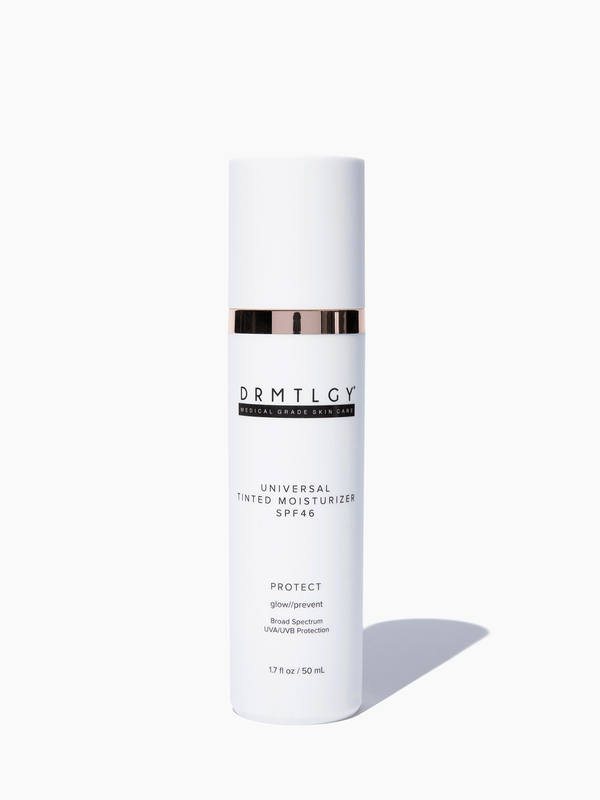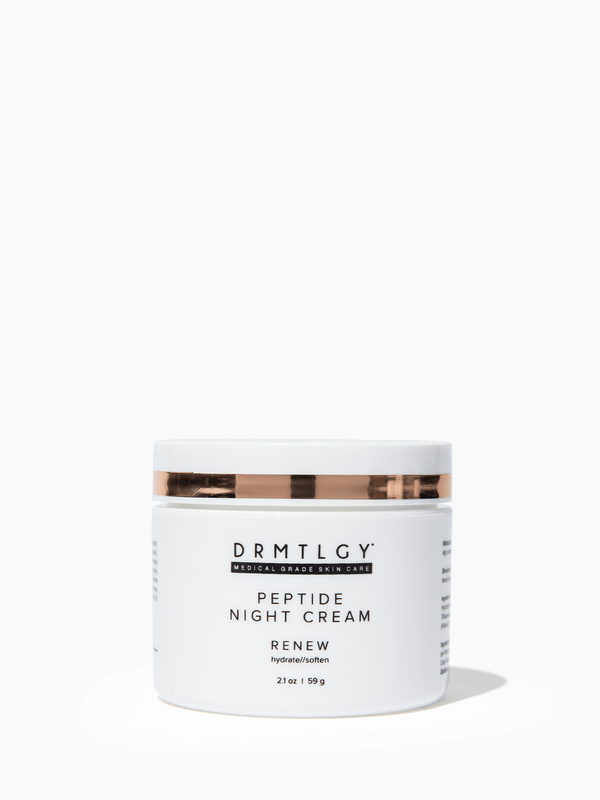
You may be thinking, “What’s the point of having a day cream and a night cream? They’re the same thing, right?”
Although how you build your skincare routines is ultimately up to you, experts recommend using a separate day cream and night cream in your daily regimen. Why? Both products serve different purposes, and because of that, they’re formulated differently too.
Keep reading to learn the differences between them, as well as three benefits of having a night cream in your skincare lineup.
What’s the Difference Between a Day Cream and Night Cream?
As mentioned earlier, day creams and night creams target different skin issues.
Day creams are designed to protect your skin from the environment and prime your skin for makeup. You’ll usually find them in lightweight formulations that contain SPF. Day creams act as a protective barrier between your skin and aggressors like UV radiation and air pollution, while its light texture prevents your makeup from looking greasy.
On the other hand, night creams help repair your skin from the stressors you encountered during the day.
But that’s not all -- they’re heavy-duty products that revitalize your skin while you sleep. You’ll often find them containing retinol, exfoliating acids, or antioxidants to repair and resurface your skin, as well as ingredients like ceramides and hyaluronic acid to replace any lost moisture.
Because of their duty in replenishing your skin’s moisture levels, they’re usually much thicker than their daytime counterparts too.
Why You Should Have a Separate Day and Night Cream
Because day creams and night creams target different issues, their formulations reflect that. So while some people may feel comfortable using a day cream for their nighttime routine or vice versa, we recommend against it.
Day creams can clog pores, thanks to SPF ingredients like zinc oxide and titanium dioxide that have large particle sizes. One 2017 study also found that certain chemicals in sunscreen, like oxybenzone, can cause skin allergies too. So if you have sensitive, oily, or acne-prone skin, this practice is definitely one to stay away from.
On the other hand, night creams may be too heavy for regular daytime use. You may find your skin breaking out after a few days’ of use, or that your skin looks oily a few hours after application.
On top of that, ingredients like retinol or glycolic acid, which are often found in night creams, can leave your skin more sensitive to the sun’s rays -- another reason to stay away from multitasking with your night creams. Retinol is also known for breaking down in sunlight, making it ineffective and useless for anti-aging.
However, night creams for daytime use may be helpful in the wintertime for those with especially dry skin. Just make sure to avoid products with retinol and other exfoliators and add sunscreen on top to protect your skin from ultraviolet radiation.
3 Benefits of Using a Night Cream in Your Anti-Aging Skincare Routine
It replenishes moisture and strengthens your skin’s barrier while you sleep
While you’re asleep, your skin heals itself and repairs the damage inflicted from outside factors. Double down on this by using a high-quality night cream with ingredients that encourage skin repair.
Why? The outermost layer of your skin, also known as the moisture barrier, is your first line of defense against bacteria and other foreign objects that may damage your body. Without a healthy barrier, your skin dries out and becomes more susceptible to inflammation and environmental damage.
To ensure your skin stays in tip-top shape, your moisture barrier needs ingredients like ceramides, niacinamide, fatty acids, and squalene -- all things that can be found in a good night cream.
Because of their emphasis on moisturizing, night creams lock in moisture and prevent water loss while you sleep. That way, in the morning, you’ll wake up with beautiful, bouncy, and hydrated skin.
It usually contains additional ingredients to further nourish and rejuvenate your skin
The best night creams don’t just provide moisture either -- they address your other skin concerns too.
For example, if your goal is to reduce the look of skin aging, you’ll want to look for a night cream containing retinol, antioxidants, peptides -- or all of the above. Other formulations solve for hyperpigmentation, acne, and other skin concerns.
But because many of these ingredients also make skin more sensitive to UV light, they’re best left for your nighttime skincare routine. So why not choose a night cream that lets you multitask?
On the other hand, night creams are a great way to incorporate ingredients that may be hard to use in your daytime routine. Maybe they have a unique texture that makes it difficult to apply makeup over, or perhaps they don’t interact well with your other products.
Because there’s no sunlight or other factors to interfere with your products, you have the freedom to go all out on your nighttime routine.
There’s a night cream for every skin type
Just as there are a variety of formulations to tackle different skin concerns, there are also a diverse array of night creams for every person -- regardless of your skin type, issues, biochemistry, or sensitivities.
Got dark spots? Acne scars? Irritated skin? There’s a night cream for that.
No matter what skin concern you’re looking to treat, there’s something out there for you. All you need to do is find it.
However, there’s one thing you’ll want to keep in mind: Night creams aren’t a magic, instant fix for your problem areas. You won’t find them drastically changing the look and texture of your skin overnight.
Just like any other skincare product, you’ll want to use it consistently for at least four to six weeks to see results.
Don’t let that discourage you, though. If your goal is to have hydrated, plump, and smooth skin, you can achieve that with our brand-new Peptide Night Cream.
In addition to containing five peptides with proven anti-aging and skin-conditioning benefits, it also contains shea butter, vitamin E, and four ceramides for a luxurious experience.
Try it out today, and if you don’t like it, return it within 60 days of your purchase for a full refund!
References
Current Allergy and Asthma Reports, July 2008, Volume 8, Issue 4, pages 299-305
Journal of Clinical and Aesthetic Dermatology, January 2013, Volume 6, Issue 1, pages 16-26
Journal of Cosmetic Dermatology, October 2017, Volume 17, Issue 1, pages 15-19














